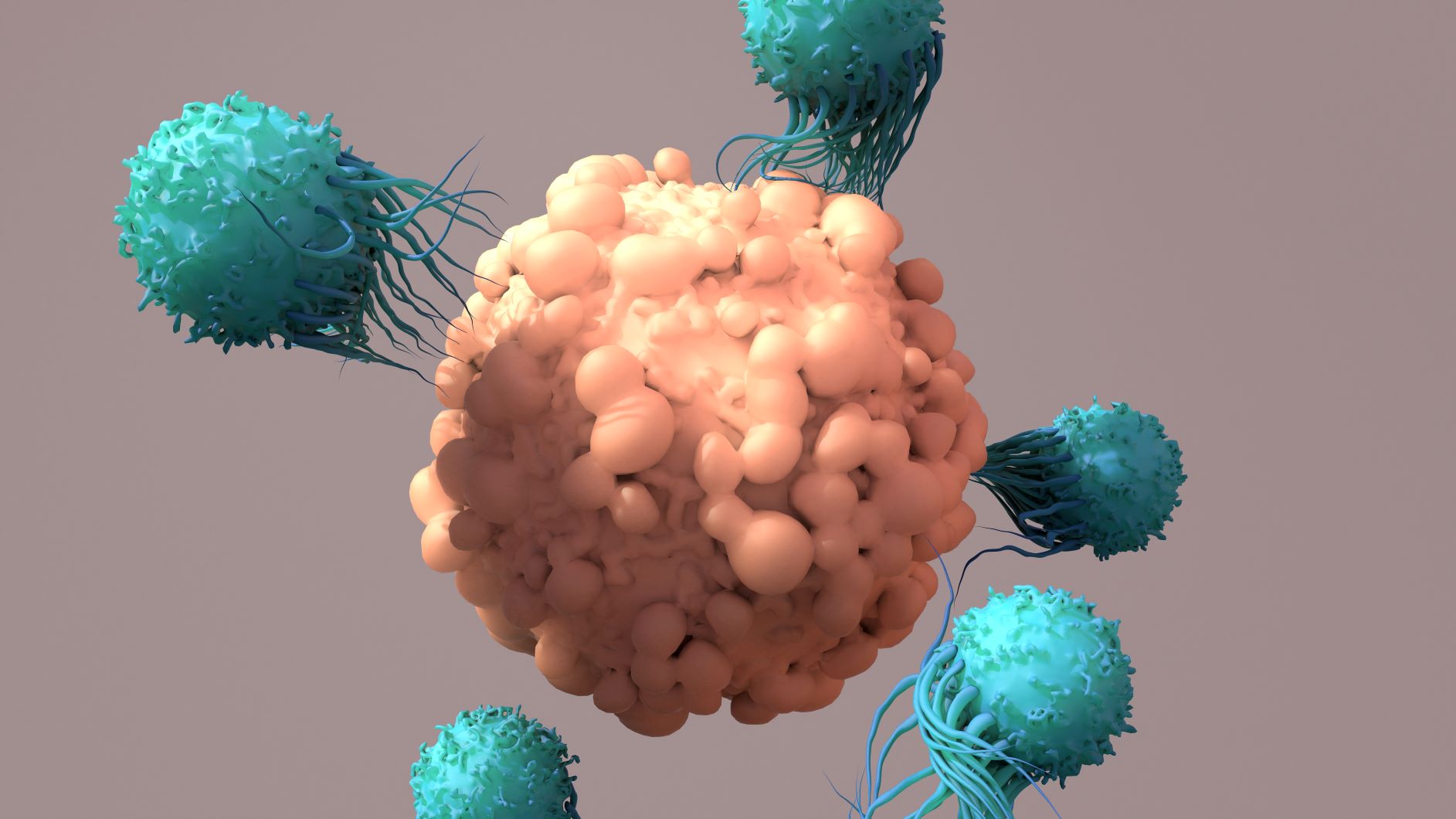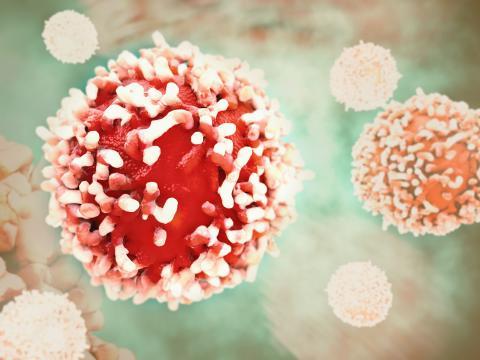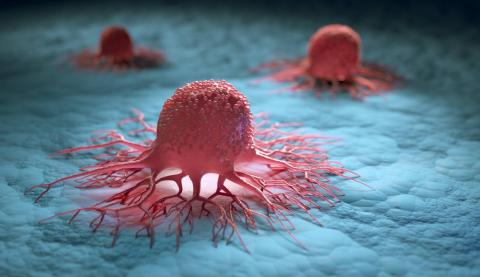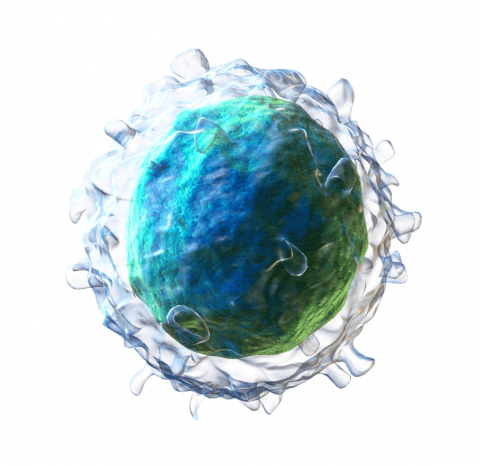Reactions to clinical trial using CRISPR to modify patient's own T lymphocytes for cancer treatment
A pioneering phase 1 clinical trial has tested a type of cancer immunotherapy. Researchers have modified patients' own T-lymphocyte receptors using the CRISPR tool to direct them against specific targets on their own tumours. The results are published in the journal Nature.

Manel Juan - Crispr (EN)
Manel Juan
Head of the Immunology Service
It is an extraordinary work, undoubtedly one of the most advanced in the field of adoptive cellular immunotherapy (ACTI) both technically and conceptually, and opens the door to the most personalized approach possible for the treatment of tumors. This is not the first study to test the CRISPR tool for the first time to modify T lymphocytes (as the authors themselves mention, this has already been done with CART), but it is the first to do so with the patient's own T lymphocyte receptors (TCRs), thus managing to direct them against specific antigens of each tumor in each patient.
The work defines how we can genetically modify other lymphocytes from the patient's own blood with various receptors of antitumor T lymphocytes, so that they can be directed against the tumor. The work manages to merge in one proposal the best of the three already successful ITCA approaches, the infusion of tumor infiltrating lymphocytes (TIL therapy), the use of transgenic TCRs and the genetic modification of T lymphocytes with gene editing. Although the focus on TCRs of cytotoxic CD8+ T lymphocytes is obviously a first step and leaves in second place the need to obtain TCRs for CD4+ T cells, which we know are relevant especially in long-term treatments, the proposal allows to raise a personalized treatment scenario for many tumors.
It opens the door to using this personalized ITCA in many types of cancer and potentially in many other diseases defined by the function of the immune system. The good development of ITCA in our country (especially in CART therapy) may make it possible to provide this option to our patients in such a personalized way that it can be considered as an academic treatment.
He declares that he has no conflicts of interest other than knowing some of the authors, in no case at a financial level.
Tabernero - Crispr (EN)
Josep Tabernero
Head of the Oncology Department of the Vall d'Hebron University Hospital of Barcelona and Director of the Vall d'Hebron Institute of Oncology
This is a great study, seminal and of excellent quality. It is a pioneering work because of the technology applied to modify these lymphocytes and make these TCRs [T lymphocyte receptors] using CRISPR/Cas9 gene editing technology instead of viral vectors, which are always more complex, and because of the biological proof of concept demonstrated in tumor biopsies, with the presence of these modified lymphocytes with NeoTCRs in the tumor. In addition, the authors silenced (knock-out) their own TCRs (alpha and beta) and constructed the new specific one (neoTCR) to give it greater selectivity and specificity. The study opens the door to a new way to modify lymphocyte TCRs and to select the neoantigens [targets present only in tumor cells] toward which these TCRs are directed by means of a bioinformatics algorithm, in a more efficient way.
This is a very important step in the field of adoptive cell therapy with modified lymphocytes (NeoTCRs) to help more and more patients with solid tumors to benefit from these treatments. Until now, the different cellular immunotherapy technologies have mainly focused on patients with hematological tumors. For the time being, antitumor activity is modest, but it is a clear proof of concept to be improved in the future.
As for the limitations, the authors are very elegant in clearly showing the complexity of the process and the limitations of the technology. Of 187 initial patients who sign the consent form, only 16 patients are ultimately able to be treated. Many of these complexities and limitations are very amenable to future improvements in patient enrichment and selection (less advanced disease and access to tumor samples with better tumor content) and improved technology.
Josep Tabernero declares having personal financial interests in the form of scientific consultancy (none direct with the work) for Array Biopharma, AstraZeneca, Bayer, Boehringer Ingelheim, Chugai, Daiichi Sankyo, F. Hoffmann-La Roche Ltd, Genentech Inc, HalioDX SAS, Hutchison MediPharma International, Ikena Oncology, Inspirna Inc, IQVIA, Lilly, Menarini, Merck Serono, Merus, MSD, Mirati, Neophore, Novartis, Ona Therapeutics, Orion Biotechnology, Peptomyc, Pfizer, Pierre Fabre, Samsung Bioepis, Sanofi, Scandion Oncology, Scorpion Therapeutics, Seattle Genetics, Servier, Sotio Biotech, Taiho, Tessa Therapeutics, and TheraMyc. Actions: Oniria Therapeutics and also educational collaboration with Imedex/HMP, Medscape Education, MJH Life Sciences, PeerView Institute for Medical Education and Physicians Education Resource (PER).
Melero - Crispr
Ignacio Melero
Professor of Immunology at the University of Navarra, CIMA researcher and co-director of the Department of Immunology and Immunotherapy at the Clínica Universidad de Navarra.
It is a technical prodigy that uses multiple technologies to make it feasible (massive sequencing, bioinformatics, cell separation, gene transfer). The work demonstrates that it is feasible and that the treatment can be safely administered to 16 patients.
The clinical response (efficacy) in these patients is, for the moment, modest for reasons that will need to be clarified to improve clinical efficacy in future studies.
Another criticism is that the procedure has been tried in many patients without being possible in many of them. Technology and production time need to be significantly improved.
Foy et al.
- Research article
- Peer reviewed
- Non-randomized
- Clinical trial
- People



